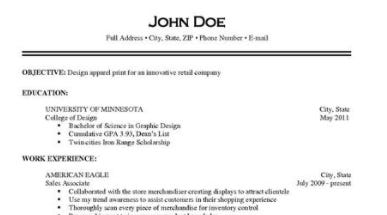Hello this is Murphy
“mumblemumble...are you open to a job change?”
In July I had quit my job after 6 months because my boss was horrible and not going to change. Quitting didn’t mean I didn’t need a job, but I could stay in THAT one. Now it was August and I was in bed with the Covid.
So I was pandemic job-hunting again. But this summer is different from any other time before.
I was looking for an IT project manager position, a job easily done from home. Work from home was tightly protected before, not everyone was willing to allow it. In ’21, those doors were flung wide.
I had heard that when men are looking for work, they apply to jobs that they are halfway qualified for. Women generally apply to jobs when they feel they can fully meet the expectations in the job description.
I had years ago decided to look for work like a man.
I applied to everything. And the application pages had become so easy I could apply to 20 jobs a day. I’d put my updated resume up in all the jobs board and set my status to “Open to work.”
The calls poured in. I naturally woke up early and I got calls starting at 5 in the morning. I would get 5-8 calls a day.
I called it the parade of Indian recruiters. I could tell they were calling from India because of how long the VOIP took to connect.
Ring
I’d pick up the call “Hello this is Murphy”
Pause
“Hello this is Murphy.” I repeated.
Pause
Pause
“Hello this is Murphy”
Third time our voices would connect.
“Hello, my name is unintelligible calling from XYZ staffing. Are you open to a job opportunity?”
And the dance would begin. Is it work from home?
“Work from home until pandemic” which meant I would have to come to the office as soon as the lockdown was lifted.
Oh, no, it’s not for me
They would beg that I take an interview. At the beginning I said yes even though I wouldn’t be taking the job. I got tougher as the weeks went by.
No. Only complete WFH.
Then the rate I asked for. These were almost entirely contracting positions, so my hourly rate had to be agreed on before we went further. I would have to reply to an email confirming the rate.
At first I asked for the same amount I was paid at my last job. But as the days went by I started playing. “How much can you offer?”
I pushed, asking for 5 dollars an hour more from each recruiter to see where they would draw they line. They might push back and cut it to three dollars more. As time went on, I was able to ask for more and more.
Most of them I never heard from again.
Some of them would set up an interview.
I was talking to a rapid-fire stream of humanity and I had never felt more inhuman. Sometimes I would ask them to repeat their name. I wanted a connection.
I could look up the name to be sure I had it right, and I would talk with them. “How are you doing? How are things in your town? Are you well?”
We would pause in a little moment to be human. It was nice while it lasted.
Then came august and the COVID, and spent a lot of time in bed. But that didn’t stop the calls from coming. I could answer the questions required in a semi-conscious state, so I did. These recruiters had their job to do too. They needed to present candidate, and I could be a candidate for them.
There were interviews with hiring managers and HR departments. More interviews than I’d ever had before.
I’d done multiple interviews in my career before. In fact, I had high hopes when I quit the job in July. I was on the 4th interview for a job I really wanted. I knew they didn’t have any other candidates and I was sure I would get an offer.
What I got was another interview. And a month later a hard no.
Everyone seemed to want lots of interviews. Who were these execs and hiring managers? A crisis of confidence seemed to be more prevalent than COVID. They had all forgotten how to make a decision. Job after job had me meet with higher-level executives. For one fortune 500 company that finally gave me a job offer, they had me meet with every exec up the CIO before deciding.
I would have had a serious conversation with any members on my project team that couldn’t make their own decisions in the field. My expectation is that a professional should be able to handle things without checking in with me for every little thing. How did this CIO deal with this much double-checking? I was just one stupid contractor who was as disposable as a napkin, and he wanted to be in on the interview?
Fear and indecision were everywhere.

And always ask “What do you think of me as a candidate?” If I had made these older managers comfortable they would often share with me their tips on how I could show myself to better advantage because I really was quite an incredible candidate. One man suggested I make my resume at least 8 pages long.
And a week or so later their people would tell me I was not selected.
It was like waiting at a train station. Don’t worry, in another ten minutes the next one will come along.
One HR person told me he’d gotten feedback from my third interview. “Don’t talk so much. Let other people speak more.”
Yes, boss. I’ll talk less for you in my fourth interview.
I accepted the fourth interview for the practice of it, but that job was not one I was going to take.
I learned to listen for more than just pleasing the interviewer. Were these people listening to me? Did they even see me? Did they want me? Or just a cutout person to fit on an org chart?
Other job hunts I hadn’t had the confidence of landing something quickly. This was a gift, to be the hot commodity at last. I could choose what was best for me, rather then feel desperate to find a job to feed my family.
Hundreds of organizations and institutions knew they needed the skills and abilities that I could provide to move their goals forward.
I was a skilled worker and some of those skills could be reserved for planning my projects and tracking my own Key performance indicators,
The first time I was laid off during COVID, I was pretty scared and the jobs were fewer. The supply and demand has shifted.
I’ve been stuck at home thinking about what I want out of life. Things have shifted. A lot of people have even sold their houses to move thousands of miles away
I’ve rearranged my priorities. I want to work with people who want to work with me. Not every business can prove they see me enough to for me to accept their offers.





What a process! I admire your determination and prowess in all this!